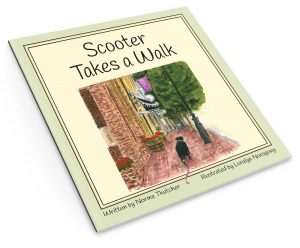
Occasionally that first year after October 2008 I would run into acquaintances who had basically ignored the death of my son. It seemed to be the same routine each time. They would offer up something like, “I’m sorry I didn’t reach out to you when Tim died. I just didn’t know what to say.”
That forced me into the role of offering comfort and absolution to the offending party. “Oh it’s OK. I know it’s hard for people to be around a grieving parent.”
Well, guess what. No, it’s not OK. And yes, it is difficult to be around people who have lost someone they deeply love whether it’s a child, parent, sibling, spouse, or friend. But it’s the correct action to take. Avoidance is never the right answer.
Twice this week I have found myself in conversations about offering condolences. Because often the people who do show up or send cards or call after a death make statements that are not helpful.
“She’s in a better place.” Really? The place I want her to be is right here by my side.
“It will all work out for the best.” I can’t even imagine living a life without him so how is that supposed to work out for the best?
“God never gives us more than we can handle.” So if I had been a less strong person, God wouldn’t have let her die? Can I have a do-over? I promise to be weaker.
In his 1981 bestseller When Bad Things Happen to Good People, Rabbi Harold Kushner writes on how ashamed he was of having offered such statements to bereaved people early in his ministry. When Kushner’s son Aaron was 3 years old, the child was diagnosed with progeria. Extremely rare, occurring one in twenty million newborns worldwide, the disease is identified by NIH as “dramatic, rapid aging characterized by baldness, aged-looking skin, a pinched nose, and a small face and jaw relative to head size.”
The average lifespan is early teens and the Mayo Clinic says that death is usually due to heart attack or stroke.
When Kushner went through the heartbreak of his son suffering all of his short life and then dying at fourteen, the Rabbi found himself on the receiving end of empty platitudes such as noted above. And his responses pretty much paralleled the responses I provided.
So what words can we offer in times of tragic circumstances? I am asking my tribe of readers and Facebook friends to share with me words that most comforted you when you faced a tragedy. My guess is that (unless you are very young or extremely fortunate) everyone reading this has lived through at least one heartbreaking experience. Please identify the experience (death of a loved one, a terminal illness, divorce, serious injury or illness, dementia in a loved one, or other) and the words you heard or read that lifted an unbearable burden if only for a day, an hour, or even a few moments.
If you’re not comfortable responding as a comment on this post, you can always email your response privately to me at Norma.Thatcher@LiftedUp.us. Then I’ll share the responses I receive in a future post in the hope of enabling us all to find the right words. I won’t identify you by name, only by the experience and comforting words.
Thank you for sharing not only your response but I’m asking you to share this post with others and/or on your Facebook page.
~~~~
NPR article on Rabbi Kushner 30 years later




Sharing memories of the person and the positive impact they had on your life.
Beth, thanks for chiming in so quickly!
I have known for almost a year that I have late stage Ovarian Cancer. The only thing that got me through the days of chemotherapy and major surgery was the unbelievable outpouring of love I received from people, near and far. Each day brought kind texts, emails, cards, calls, visits, food, flowers, and gifts. I was astounded by hearing from people I hadn’t been in touch with for many years. When I began this cancer journey, everyone suggested that I keep a journal. Sadly, I was too sick at the beginning to keep up with writing down all I was going through which, at the time, was what I thought a journal should entail. . Now, I wish I would have kept a journal chronicling, not my doctor visits and hospital stays, but every kind gesture I received from people from all the many stages of my life. I did save and treasure every card I received. I know it was hard for people to talk to me because they didn’t know what to say, but they did and I will be forever grateful. My advice is to reach out , regardless of how hard it is. Just let them know you are thinking of them. For me, the contacts meant everything.
Linda, I think it’s wonderful that you experienced such an outpouring of love from all those different avenues of your life. We are all so grateful at how far you have come in healing!
I went through a horrific divorce that took three years to complete and, at the time, I thought that was the worst thing that would happen to me. Then in 2011, my younger son died of an accidental overdose at the age of 19. Again, worst thing that could happen. But no, I was not finished with “worst” yet. Two months ago, my older son, 31 years, died of an unstoppable brain infection. He had the best care by the best doctors and fought for two long years. So I have been through my share of useless, shall I say, hurtful, platitudes. In my opinion, the best thing to do is, first of all, reach out to the grieving person and, secondly, say “ I’m sorry”. Tell a story about the deceased, something you liked or remember and most of all, say his or her name. Those of us grieving need to hear that their loved one is remembered and want nothing more than to hear their name aloud. Thank you, Norma, for writing this extremely important and meaningful piece.
Denise, thank you for sharing your tragic story with all my readers. My sister Bev said she was so proud of you for responding. And I know Zane and Catzby are proud as well. Because yes, no matter the length of time, hearing others say our loved ones’ names aloud means the world.
After my husband died suddenly, a simple “I’m sorry” the first time I saw the person was appreciated. I didn’t feel like talking much and certainly didn’t like people asking “How did he die? And when I said I didn’t know – they’d start guessing, like they had a clue!!! That drove me nuts. I had two kids at school address me directly, one just looked at me with tears in his eyes and hugged me. The other came in, said “I heard about your husband and I’m sorry” and walked out. Both meant so much to me because of their different responses but the acknowledgment was what counted. Lots of people would say, “if there’s anything I can do, let me know.” If they’re close friends that was helpful, and some of those I’ve taken them up on it! Two close friends came and cleaned my house for me! But with mere acquiantinces – that doesn’t mean as much. I’ve found the random comments of someone saying – “You know, I was thinking of you the other day and prayed for you” to be thoughtful. One thing I learned in my Faith Community Nursing Class that I’ve liked and used is “tell me about some of your favorite memories of .. . (your uncle, aunt, grandmother, husband . . . ). But had to laugh when someone responded “You know, I never really liked them.” You just never know. I just know ignoring it is NOT the right thing.
Marlene, this was a well-thought-out response. I’m guessing other readers felt the same emotions I did–incredulity at those who had to guess at how Ed died, happiness at learning of the sweetness of the middle school kids, gratitude for the friends who came and cleaned your house, and of course laughter at the relative who confessed they actually didn’t like their newly deceased relation. This response was so YOU! Thanks for sharing.
My belief is that no one wakes up and decides to ignore, or offend, someone who is suffering… We just live in a society that does not practice grief in public or in groups, unless it is a known public figure. In my ten years working as a facilitator and seeing a lot of very private illnesses, disabilities and losses, I think that a genuine “I am so sorry,” with direct eye contact and possibly a hug, is a good gesture for all of us who do not have the right words. The key is to TRULY CARE. Wonderful post as always!
Frederique, yes, a good point that most people would not offer comments maliciously to a grieving person. Thanks for being a long-time reader.